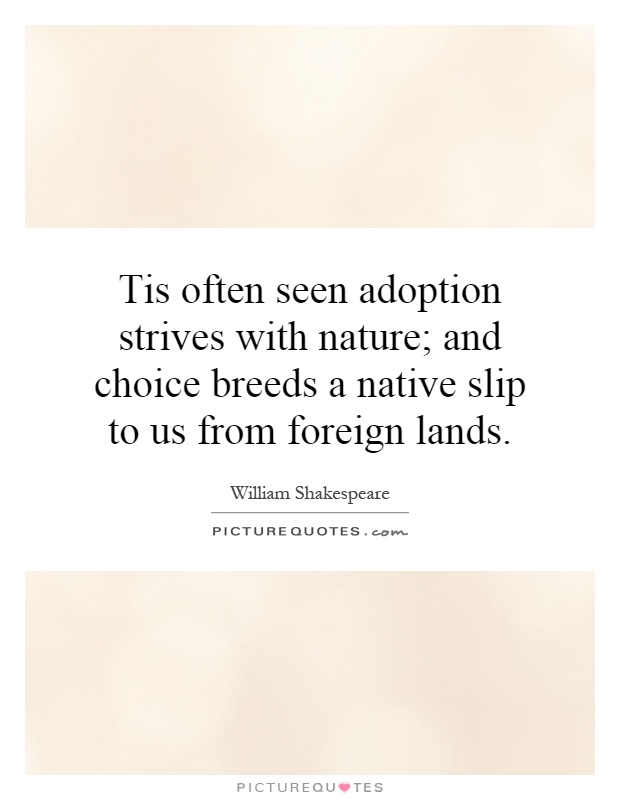Tis often seen adoption strives with nature; and choice breeds a native slip to us from foreign lands

Tis often seen adoption strives with nature; and choice breeds a native slip to us from foreign lands
In William Shakespeare's works, the theme of adoption and nature is a recurring motif that explores the complexities of identity, belonging, and the influence of one's origins. The quote "Tis often seen adoption strives with nature; and choice breeds a native slip to us from foreign lands" encapsulates the idea that one's true nature can sometimes clash with the circumstances of their upbringing or the choices they make in life.Adoption, as depicted in Shakespeare's plays, is often a source of conflict and tension. Characters like Prince Hal in "Henry IV" or Viola in "Twelfth Night" struggle with their identities as they navigate the expectations of their adoptive families and the pull of their true nature. Prince Hal, for example, must reconcile his wild and rebellious nature with the responsibilities of being a future king, while Viola must navigate the complexities of gender and love in a foreign land.
The idea that "choice breeds a native slip to us from foreign lands" speaks to the notion that our decisions and actions can shape our sense of belonging and identity. Characters like Macbeth or Othello make choices that lead them down dark paths, ultimately alienating them from their true selves and their sense of home. Macbeth's ambition and Othello's jealousy are foreign to their true natures, but they become native to them through their choices and actions.
Shakespeare's exploration of adoption and nature reflects the broader themes of human nature and the complexities of the human experience. The quote highlights the tension between our innate selves and the external forces that shape us, whether through adoption, choice, or circumstance. It reminds us that our true nature is not always easily defined and that our sense of belonging is often a complex interplay of nature and nurture.












 Friendship Quotes
Friendship Quotes Love Quotes
Love Quotes Life Quotes
Life Quotes Funny Quotes
Funny Quotes Motivational Quotes
Motivational Quotes Inspirational Quotes
Inspirational Quotes